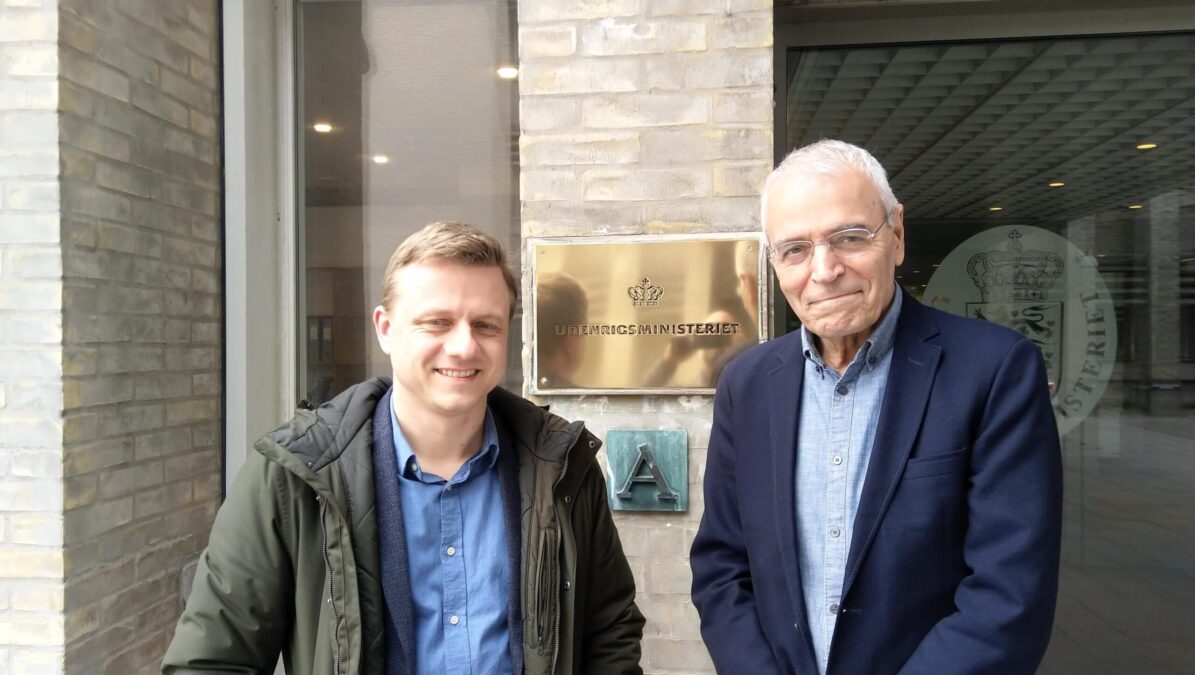This rights-based perspective is important because it holds the majority to its obligation to protect those who believe and think differently. It gives persecuted Christians a voice as they are vulnerable and cannot always speak up for themselves in the communities they live in.
This can be justified by the fact that a human being, as a creature of God, has a dignity that should not be violated, regardless of whether the majority of the population agrees with their beliefs or not. And Paul inspires people to use the opportunities provided by the legal system and political engagement to prevent, limit and avoid persecution, as he used his Roman citizenship to avoid torture. From a rights point of view, Christian persecution is a phenomenon on par with the persecution of other minorities such as Ahmadiyya Muslims, atheists or political dissidents.
But at the same time, there is another biblical perspective on the opposition to Christians, not only as an affront, but also as a condition. Because the persecution Christians are subjected to is linked to Jesus' own suffering. In essence, it is not the Christians as a minority that the opposition is directed against. It is Christ in the believers. When Paul was stopped by Jesus on his way to Damascus to imprison the believers there, Jesus said to him: "Saul, Saul, why are you persecuting me?".
Jesus speaks of persecution as a condition in several places, for example in the Sermon on the Mount: "Blessed are you when men hate you, and revile you, and scorn you, and abhor your name as evil for the Son of Man's sake. Rejoice in that day and leap for joy." Jesus also said, "If they persecuted me, they will also persecute you." This promise is repeated by Paul: "Persecuted are all who will live a godly life in Christ Jesus." The apostles were flogged for telling about Jesus, but they were "glad because they had been counted worthy to be dishonored for the name of Jesus".
This perspective on persecution as a condition is not opposed to the rights-based approach, and both perspectives must be applied when understanding and, not least, helping persecuted Christians. The rights-based perspective gives persecution a language to articulate and respond to the suffering, also legally and politically. But by extension, Jesus' positive teaching on persecution opens up new possibilities for the communication of Christianity.
In my 15 years with the Danish European Mission, I have personally met hundreds of persecuted Christians. There is great variation in the persecution they have faced, as well as great variation in their reaction and interpretation of it. One persecuted Christian I have met is Izar from Iraq.
When the Islamic State drove out Christians in Iraq in 2014, a number of other non-Sunni minorities were displaced, including the tribe Izar was part of. Seven years earlier, he was a prominent member of the tribe, but when he converted to Christianity, he was ostracized by his family, disinherited and forced to leave. But when the Islamic State drove the entire tribe from their villages, they needed emergency aid.
The convert became the leader of the project supported by the Danish European Mission's donors and was now able to provide emergency aid to the people who had ostracized him years before.
He was able to demonstrate the Bible's message of forgiveness in a practical way. Not only did the tribe receive emergency aid, but also help to return to the villages, including restoring water and electricity supplies, clinics and schools. Today, he is accepted, lives with the tribe, and more people are interested in learning more about the Christian faith.
A few years ago in Kyrgyzstan, I interviewed a woman, Aida, who worked in a health project we had in the country. She told me that her father-in-law was an imam before he had a powerful encounter with Jesus and started sharing the gospel in his village. The village elders became angry and he was killed in January 2006. He was severely beaten and there was blood in the room where Aida and her husband cleaned after the killing.
For a long time afterward, she was afraid. But she and her husband forgave the executioners and settled in the same village to show God's love to Aida's father-in-law's persecutors. She was threatened with sexual assault, and their children received unfairly poor grades in school. But the couple helped their neighbors in practical ways, including her hairdressing and her husband's carpentry and electrical work.
Through charity, the mood in the village began to change, with about half of them becoming favorable towards the Christian convert family and some wanting to hear about Christianity.
There are many such examples where persecuted Christians respond with forgiveness and love for their persecutors. Where their desire to share the message of God's love in Jesus Christ with their fellow man is greater than their fear of persecution. In some cases, the examples are carved out of the descriptions of the lives of the first Christians in the New Testament, where persecution is sometimes described as conducive to mission.
Tertullian coined the concept of religious freedom as a right at a time when persecution of Christians was frequent, saying that "the blood of martyrs is the seed of the church". Luther said: "The church grows under persecution, but where peace and tranquility prevail, Christians become lazy and apathetic." Professor of Religious Freedom Christof Sauer, on the other hand, asks whether it is church growth that leads to persecution. Regardless of the cause, many Muslims today are converting to the Christian faith despite the risk of persecution, for example in Indonesia, Turkey, Yemen, Algeria and Iran.
In Iraq and Syria, thousands of Muslims are becoming Christians, but their numbers far outweigh the large number of other ethnic Christians emigrating from the countries, not only due to Islamic persecution, but also for a number of other reasons. For example, many Christian parents could not see any future prospects for their children in Syria as the school system had partially collapsed during the civil war.
Conversion in the Muslim world has become a phenomenon that is being studied by researchers, such as Sara Afshari, PhD, in relation to the impact of Christian television in Iran. Duane Alexander Miller, PhD, estimates that up to 500,000 Muslims may have become Christians in Iran, while Thomas Schirrmacher, professor of religious freedom, estimates the number to be even higher. The number of Christians with a Muslim background in Indonesia is around 3 million, while estimates for Algeria start at 50,000 converts.
If only a legal perspective is used, another biblical perspective on persecution can be overlooked. Namely, that persecution is not only an offense, but also a condition. That persecution is a suffering of Christ, but that the church can experience his resurrection power, so that in some cases the gospel reaches further.
As a child, I attended a church where a ship hangs from the ceiling as a symbol of the congregation sailing towards heaven. Perhaps the ship illustration can also apply here, so that Jesus not only promised sailing routes in calm, democratic waters, but also into dictatorship states with waves and storms. But here, too, it is the church's task to throw lifebuoys to people in spiritual distress.






